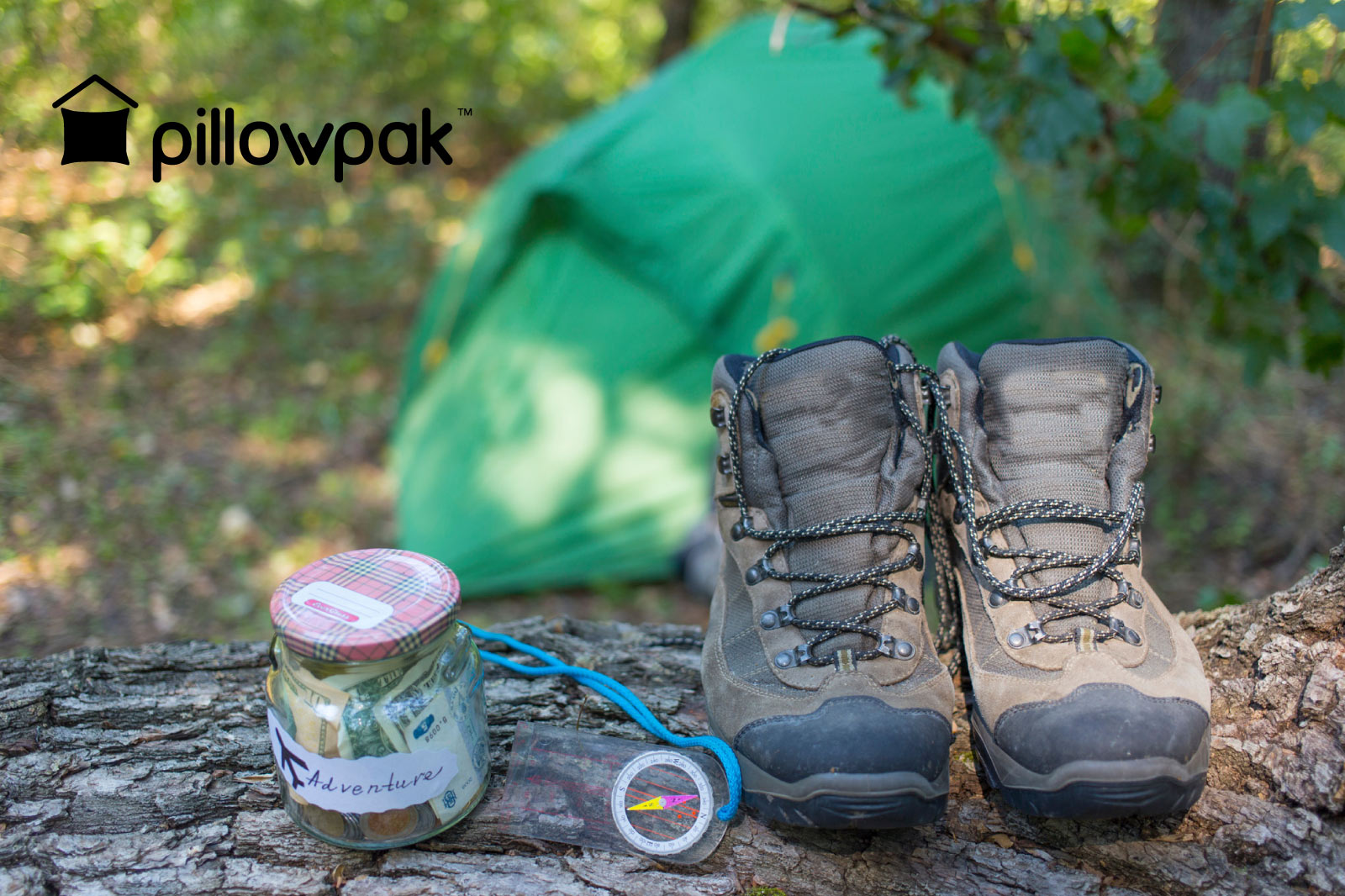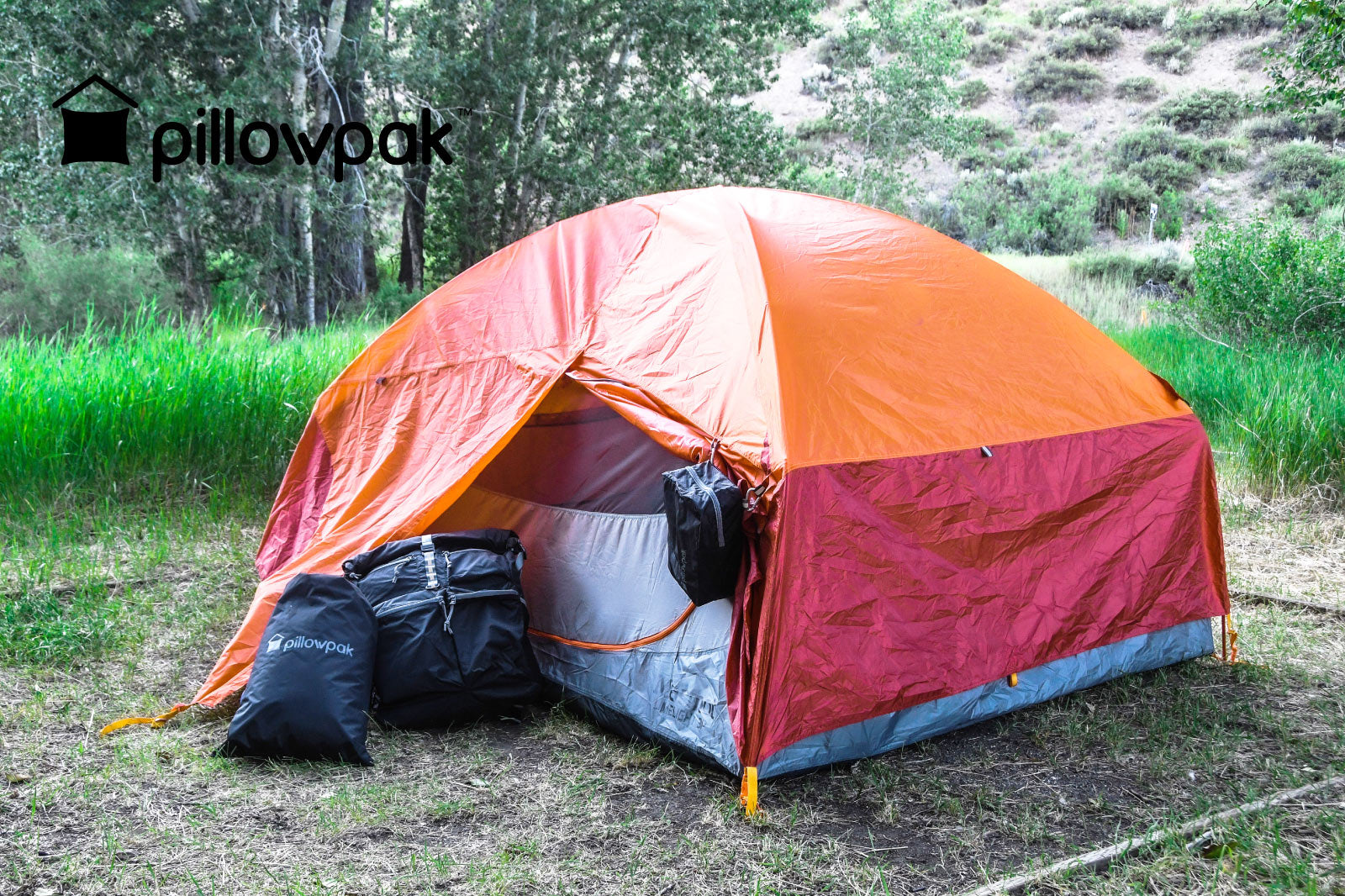The scouting motto pretty much sums up the mentality you need when packing for camp: be prepared. While you may only be heading somewhere that’s just a few hours within your own state, scout camp can throw the unexpected at us.
Bad weather, accidents, and injuries should all be considered when deciding on your scout camp packing list. And that’s not to mention all the items that help make your stay even more fun and comfortable.
To help you decide what to pack for scout camp, we’ve put together this guide that walks you through the following:
- How to plan what to pack
- The scout camp essentials
- How to pick a sleeping bag
- What extras to consider
- Mobile apps for scout camp
You can also view and download our super-useful scout camp checklist here.
How to plan what to pack
Every boy or girl scout needs to bring a few essentials with them to camp (which we’ve listed in the below section), but you also need to consider a number of factors when deciding what to pack:
- The Location: Is the camp on a mountain at a high altitude? If so, prepare for very cold nights. Or is it in a humid canyon or tropical sea level? In which case it’s going to be hot and sticky 24 hours a day. What’s the ground conditions going to be like, will you need heavy-duty hiking boots or will sneakers cut it?
- The Duration: An overnight, weekend or week-long scout camp all require different amounts of gear, in terms of changes of clothes, food, and supplies.
- The Weather: Is it hot or cold? Dry or wet? This will determine the amount and type of clothing you’ll need to pack, plus other considerations like sleeping bag thickness and sleeping matt.
- Planned activities: Are you going to be swimming, mountain biking, playing football or other sports? You’ll need to pack specific items for many of these activities.
The Scout Camp Essentials
Regardless of the above factors, there are some scout essentials that should be taken to every camp.
- First aid kit: A small, basic first aid kit is essential when out in the wild. It’ll enable you to treat any minor injuries or provide initial care to more serious injuries while waiting for help. You can buy a pre-assembled kit or put together your own: here’s a great resource from the Red Cross on first aid kit supplies.
- Penknife or Swiss Army Knife: Owning a knife is dependent on your age and skill level, so always check with a parent or guardian and troop leader first. A knife can be super useful around camp, from cutting food, whittling wood for kindling to creating a spark from a flint. When choosing a knife, it’s best to choose one with a mid-sized blade that’s nimble enough for whittling, but big enough for chopping food.
- Flashlight: Another essential! Ideally, you want to pack both a headlamp and a penlight, so you have every base covered. To be extra prepared, you could also pack a small battery-powered camping lamp, which is the best way to illuminate the inside of a tent at night.
- Matches/lighter: Again, this is another age and experience level-dependent item, so always check first. In terms of which to take, they both have pros and cons. Matches are great when trying to light kindling as you can place them under a pile until it catches alight, however, rain can quickly render them unusable. On the other hand, a good lighter can be effective in rainy and windy conditions but can be less effective when lighting a fire, so carry both in a resealable plastic bag to keep dry.
- Sun protection: Either sun cream or spray: if you’re in a very hot location a spray may be better, as it’s absorbed quicker by the skin, so you won’t sweat it off as quickly as cream. Below are guidelines for which SPF to use according to some leading authorities on skincare, so consider what the weather forecast is and choose an appropriate level of protection:
- Low protection: under 15 SPF
- Medium protection: 15 to 29 SPF
- High protection: 30 to 49 SPF
- Very high protection: over 50 SPF
- Insect repellent: If you’re camping somewhere during mosquito season, then insect repellent with at least 25% DEET is a must. If you can whip up a natural solution, even better!
- Hand sanitizer: When you’re out on a hike you may not be able to wash your hands before every meal, so carry a small bottle of hand sanitizer with you on any long outings.
- Suitable layers: The trick to staying warm when hiking and camping is layering. In cold weather, you want a base, middle and outer layer, then for moderate weather remove a layer, and for hot weather remove another layer.
- Waterproofs: Even if you’re camping in the middle of summer, the weather can still be unpredictable. It’s not uncommon to experience severe thunderstorms during spells of very hot and dry weather, so always pack waterproofs. As a minimum, pack a waterproof jacket with a hood. Waterproof pants are also a good idea, particularly if you’re going to be doing a lot of trekking during the trip.
- Towel: Consider a travel towel if you’re looking to save space.
- Map and compass: Mobile apps such as Maps.me (more on that below) are great for staying on the trail during a hike, but should never be relied upon as your only means of direction. Therefore pack a small compass and a map of the area. If you need to brush up on your orienteering skills, here’s a great Youtube tutorial.
- Mess kit: These are your cooking, drinking and eating utensils. The simplest thing to do is purchase a robust all in one kit from an outdoors store. As a minimum, this should include a small stainless steel saucepan with lid, a bowl, a cup, a knife, a spoon, and a fork, that all fits nicely together when packed. Consider getting reusable plastic utensils (apart from the saucepan), as this will save you weight.
- Water bottle: Being a good scout means being conscious of your impact on the environment and the natural world. Therefore, avoid buying bottled water when there’s a clean water source that’s safe to drink. So pack a sturdy reusable water bottle, ideally with a volume of at least 750ml.
- Energy boosting food: While chips and candy can be a nice treat after a long day at camp, you want to choose food that is high energy. Therefore consider things like trail mix and granola bars.
- Spare clothes: An old bandana or another piece of cloth is always handy. It takes up no room in your pack and serves lots of uses, including sun protection, slings, and even a fire starter if you struggle to find dry kindling.
- Duct tape: The tape of a thousand uses! Perfect for patching a hole in your tent, securing a broken backpack or even lighting a fire. Not everyone needs to carry this, so coordinate who in the troop is going to bring it.
How to pick a sleeping bag
The number one scout camp essential is most probably the sleeping bag, which is why we’ve written a whole section on this topic. The choice of sleeping bags at your local outdoor’s store or online can be mind-boggling. So here are a few pointers on how to choose the perfect scout camp sleeping bag:
- Temperature rating: You’re probably not going to be camping anywhere with extremely low temperatures during a weekend scout camp, so a “three-season” sleeping bag will suffice. Most modern bags state the temperature range they’ve been designed for, so try and pick one that’s within the temperature range of where you’ll be going on scout camps.
- The bag cut: Sleeping bags typically come in two cuts: mummy versus rectangle. The mummy cut tappers around the legs to conserve heat in cold conditions, while the rectangle design is a bit more comfortable as it allows more movement. If you’re only going to be camping in spring or summer, then the rectangle design should be fine (plus these are usually cheaper than mommy sleeping bags!).
- Weight and pack size: You should also consider weight and pack size. If you’re going to be doing lots of hiking before making camp, then spending a bit more on a lighter bag could be money well spent. But if you usually camp close to the parking lot, then this isn’t something to worry about. The same applies to the pack size when it’s packed up.
What Extras To Consider
Along with the essentials, here are a few extras you could consider, which can help make scout camp that little bit more fun and comfortable:
- Power block: Keep your phone and any other devices charged with a good capacity power block. It can be particularly useful when trekking, to make sure you don’t run out of battery.
- Portable speaker: Perfect for a bit of entertainment around the camp.
- Pack of cards: Much easier to pack than a board game and a great way to stay entertained.
- Your normal pillow: You always get the best night’s sleep when you have your own pillow with you, so this is a great extra to pack for added comfort.
Check out our scout camp backpack that has been designed to fit your pillow.
Mobile Phone Apps for Scout Camp
While scout camp is all about getting back to nature and the simple life, there are some mobile apps that can come in very handy. We’ve listed our top mobile apps for camping below:
- The Scouting Handbook: This is the official Scout Handbook app by the Scouts of America and contains all the reference material you need in one place to track things such as hiking, camping, and advancement towards badges. Cost: Free
- Maps.me: This is a great app for trekking. You can download maps to use offline for when you venture into areas with no cell coverage, and it has thousands of trails and waypoints mapped. Cost: Free
- First Aid by American Red Cross: This app is perfect for both educating yourself on first aid techniques and best practices, as well as providing advice on what to do during a real-life emergency. Cost: Free
- Accuweather: This app is most likely way better than the pre-loaded weather app your phone came with. It provides hourly forecasts based on your precise location, enabling you to better plan what clothes you’ll need to take on any excursions you’re planning. Cost: Free
- The Night Sky: This is one of the best apps for exploring the night sky, just point your device at the sky and it will tell about the constellations you’re looking at. Cost: Free (with in-app purchases)
- Campfire songs: Last but not least is the campfire songs app, which, well, provides the lyrics to a bunch of campfire songs. Perfect if you need to brush up on your knowledge before camp! Cost: Free
And finally
Don’t be tempted to cut corners with the essential items, as anything can happen during scout camp. By following our scout camp packing list you’ll be prepared for virtually anything, while also guaranteeing a good night’s sleep.
Also in Guides


12 Hacks for DIY Glamping on a Budget


How to Choose the Best Family Camping Tent






